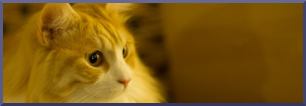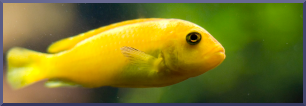TERMINOLOGY
Over the years, the dæmian community has coined quite a few terms ('dæmian' among them) regarding dæmons in order to more easily discuss the topic. Some terms are intuitive while others are not, and this handy lexicon will help you understand them all!

Basics
dæmon
A personified other half of one’s internal dialogue, which usually has a name, gender and personality that often differs from that of said person. Daemons are usually imagined (or projected) in animal forms.
The name comes from the Greek word "daimon" (also “dæmon”), a minor spirit (either good or evil). "Dæmon" is pronounced "demon" according to His Dark Materials, but some members prefer to pronounce it as "day-mon", to differentiate it from the infernal entity.
dæmonism
The practice of communicating with one’s dæmon.
dæmonian
A person who knows and communicates with their daemon.
dæmonling
A little-used term for a newly discovered dæmon or a new dæmian.
His Dark Materials (HDM)
The book trilogy by Phillip Pullman, in which a world with corporeal daemons is described. This concept was an inspiration for daemonism as we know it.
The Daemon Page
The website you are currently browsing which contains the summary of daemonic knowledge.
The Daemon Forum (TDF)
The forum of the daemian community, where most of our resources are gathered, where you can find help with form finding and chat with other daemians from all around the world. We hope to meet you there!
In general
CIEday (Coming-Into-Existence day)
The specific date when you started communicating with your daemon. It serves as daemon’s day of birth, and the term is also used to denote the anniversaries, just like birthdays are. It is not uncommon that the exact date is unknown and CIEday is approximated.
projection
The imagining of the dæmon interacting with the external environment, as if they were physically present beside their daemian. While daemons are not and will not be corporeal, we can imagine what they would be doing at that very moment if they were.
unseparated
A term applied to someone who doesn't communicate with their dæmon, or to the hypothetical dæmon itself. A person who once knew their daemon but stopped communicating with them would also be considered unseparated.
crisis
A period of uncertainty about a previously certain dæmon characteristic, such as name or gender, or a fitting form. Can also be preceded by one of those words: eg, "name crisis"; "form crisis."
mental construct
The viewpoint that daemons are something that people create out of their own minds rather than a being that exists independently of their people.
orthodox dæmonism
Rarely used term that describes a set of convictions about daemons that are often considered old-fashioned, such as that daemons should not be projected as humans or that they should not change their form once they settle.
hei / shei, wei
Pronouns sometimes used in relation to your daemon (ie, "Hei's very funny" refers to your dæmon, while "He's very funny" refers to your friend Jonathan). Falling out of common usage.

Forms
form
The shape your dæmon takes in projection, usually an animal but the possibilities are limited only by your imagination, regarding not only what you project - an animal, a human or an object - but also their sizes, colours and shapes.
true form
The settled form of a dæmon, or in other words, a form in which a person settled. It is the form which best describes a person’s personality and/or identity. One person can find a true form in each of the form finding systems: analytic and Pullman.
analytic form
The meaning of an analytic form comes from the detailed interpretation of animal’s traits and behaviours in order to describe one’s personality. To put it simply, i.e. a gregarious animal means a social person, a nocturnal one - a person preferring to stay out of sight, but the full interpretation of a form contains a much longer list of personality traits.
Pullman (symbolic) form
The meaning of a Pullman form is derived from cultural beliefs, common associations and symbols in order to describe one’s identity and life’s narratives. I.e. an owl fits a person connected to wisdom and knowledge, and a mustang means a person who values freedom highly. The full Pullman interpretation consists of a whole list of themes and associations.
comfort form
A form that is taken by your daemon for the comfort of projection, cheering the daemian up or making them feel better in some way. It can be used instead of a settled form. Sometimes they can be mistaken for a settled form, especially if taken for longer periods of time by a daemon of an unsettled person. The comfort form, however, does not necessarily fit daemian’s personality.
personal form
A form that does not describe one’s personality or identity, but is an important form to the daemian and/or the daemon. It can be a form one feels connected to spiritually, thinks it important because of sentiment or finds especially comfortable. Simply put, this form has additional personal meaning to it.
aspirational form
A form that describes a person who one aspires to become. It is easy to mistake it for a fitting form.
viable form
In both form finding systems, analytic and Pullman, only animal forms are considered as viable, that is - forms that one can settle in. Analytically, some animals might be unviable because of the lack of information to interpret, which also excludes mythical and most extinct animals. Many daemians agree that intelligent and manifest personalities, such as primates or killer whales, should not be considered viable. On the other hand, these same forms in their Pullman version are possible to settle in.
OTF (One True Form)
The term similar to a true or settled form, with an additional meaning of it fitting the person perfectly. It is sometimes questioned if there is a thing like a “true” form for everyone.
The phrase comes from the fandom expression "OTP" or "one true pairing," a romantic partnership considered to be the only possible one for the characters in question.
OTOF (One True Other Form)
The form that would be the person’s settled from if not for the one they actually did settle in, or if their settled form was a different type (class, order etc.) of animals.

Form Finding
analysis
A written down full interpretation of particular animal’s traits and behaviours, translated into personality characteristics, usually with the use of commonly accepted guidelines of the daemian community.
vibe
A brief interpretation of animal’s most significant traits, translated into personality characteristics. A shorter version of an analysis.
It can be also used as a feeling you get from another person, i.e. getting “snake vibes” from someone means that they feel like a person with a settled form of a snake would.
reverse analysis (RA)
A description of one’s personality that can be posted online, especially on The Daemon Forum, in hopes that other daemians can help deduce the best fitting analytic form.
The name comes from the original practice from back when the daemian community was forming, when daemians tried to analyse whatever form their daemon took; analysing one’s personality to find daemon’s form was a reversal of this.
portrait
A written down full interpretation of particular animal’s cultural symbolism, translated into life’s narratives and roles, usually with the use of commonly accepted guidelines of the daemian community.
sketch
A brief interpretation of animal’s most significant symbolism, translated into life’s narratives. A shorter version of a portrait.
self-portrait
A description of one’s life’s narratives, roles they take and tropes that are important to them, which can be posted online, especially on The Daemon Forum, in hopes that other daemians can help deduce the best fitting Pullman form.
Settling
to settle
To reach the state of a stable personality, usually in late adolescence or adulthood, at which point it is possible to determine the dæmon's true form; or, alternatively, to decide on the daemon’s true form, to find the most fitting form. The two events don't always coincide, since one’s personality can settle without immediately finding the best fitting form. Settling in analytic and symbolic sense do not need to happen at once.
settledom
The state of being settled.
SFday (Settled-Form day)
The day your dæmon settled: either in the sense of the day you discovered the settled form, or, more commonly, the day you decided to "declare" settledom and announce your settled form.
unsettled
A person whose personality is not stable enough to determine their true form, or a daemon that does not yet have a true form.
settled-unknown
A person whose personality has settled but does not yet know their true form, or their daemon.
stable
A person who has a form that has been fitting for a long time but does not consider their personality settled, or their daemon. Compare "to settle".
false settling
The event of believing oneself to be settled but later realizing you were wrong, either because the form was not actually well-fitting, or one’s personality was still too unstable.
-soul
The term used, usually as a suffix, with an animal name to identify someone with the true form of that animal. For instance, "dog-soul" means a person settled as a dog. This term does not imply that the person's soul is literally that animal (as in the case of otherkin or therians) or even affirm the existence of souls.
form possessiveness
The bad-natured phenomenon when a person believes to “own” a particular form, often but not necessarily their settled form, and feels like they are justified to restrict other people from settling in, or even using it without their approval.